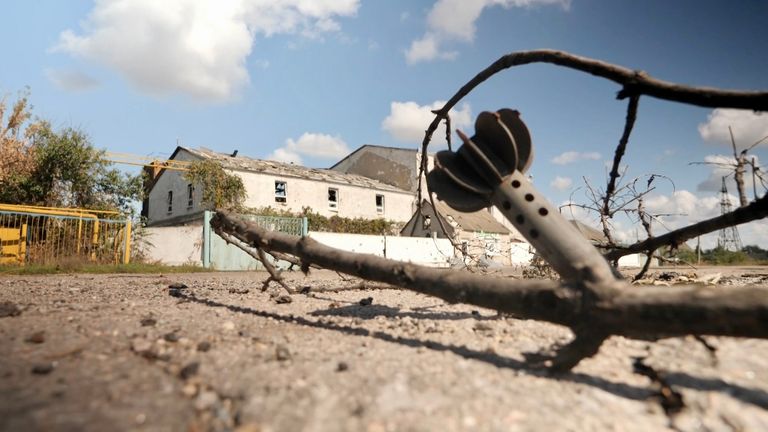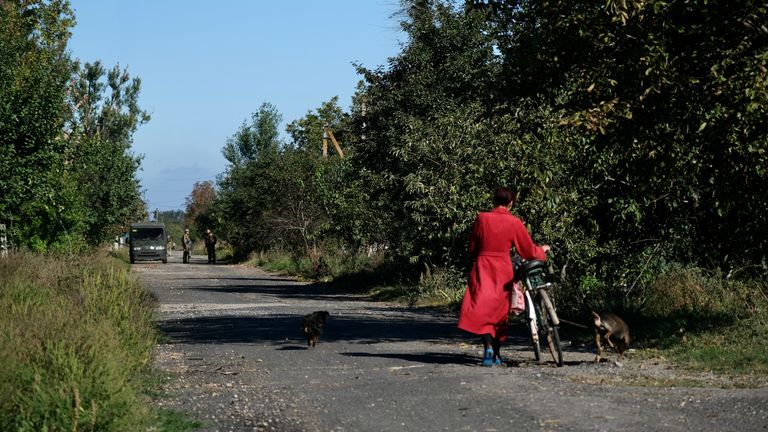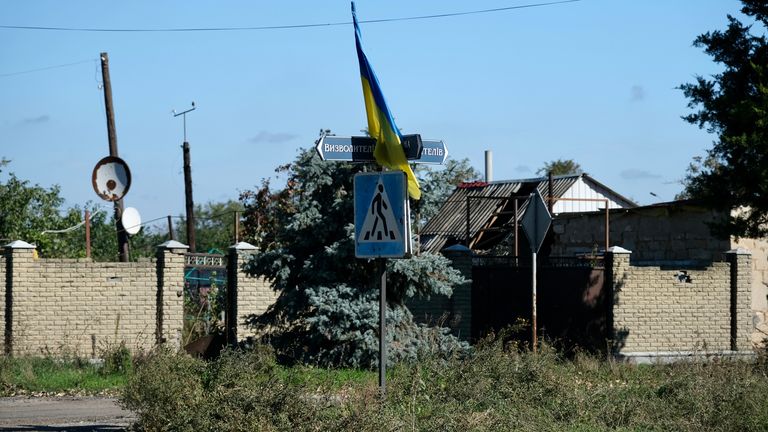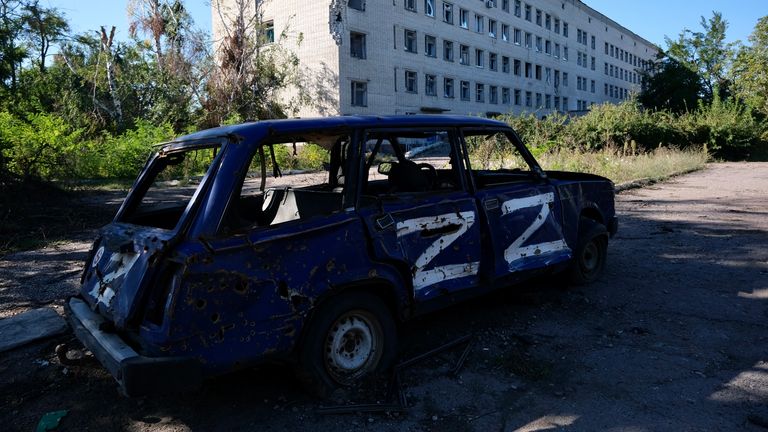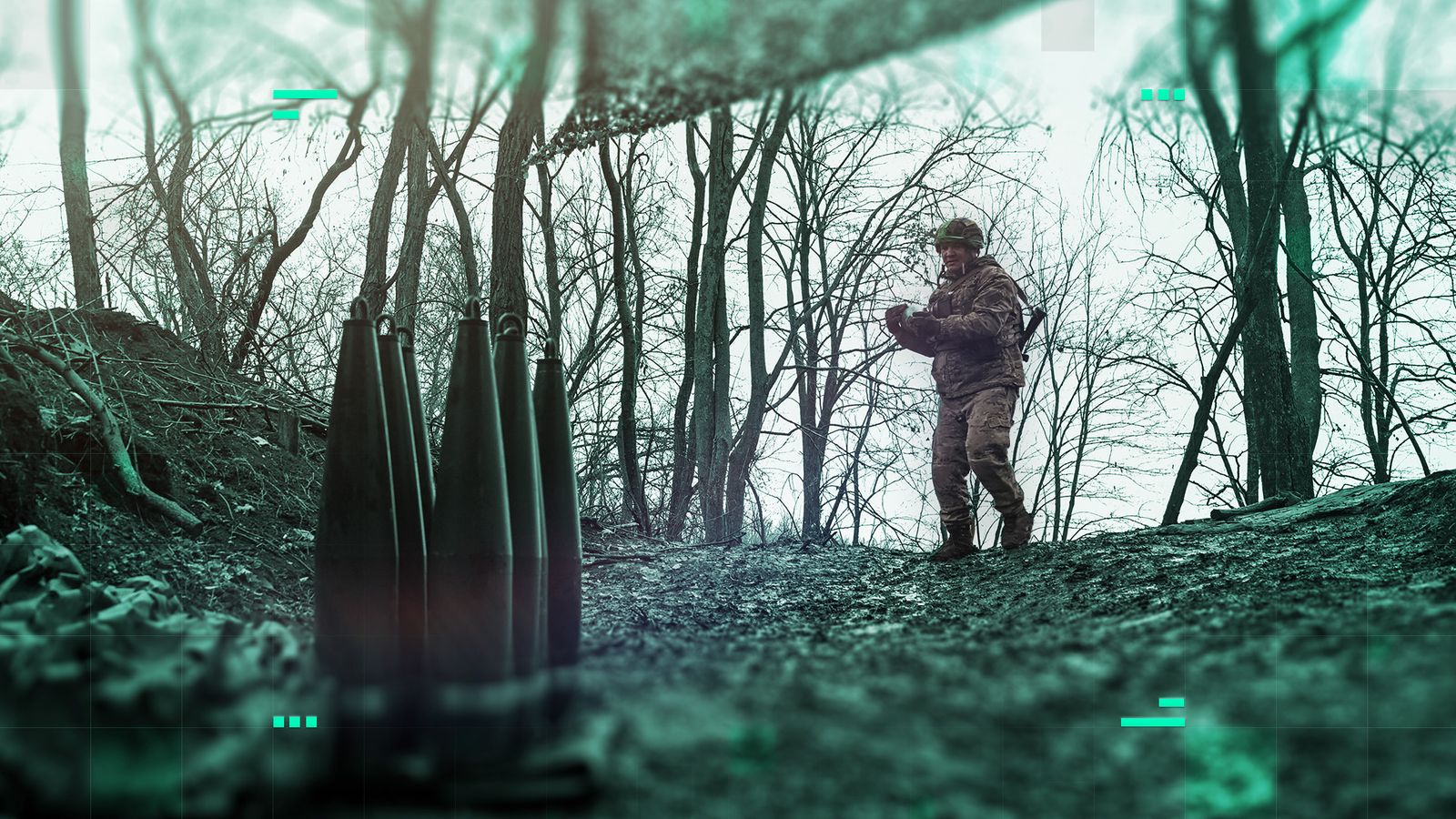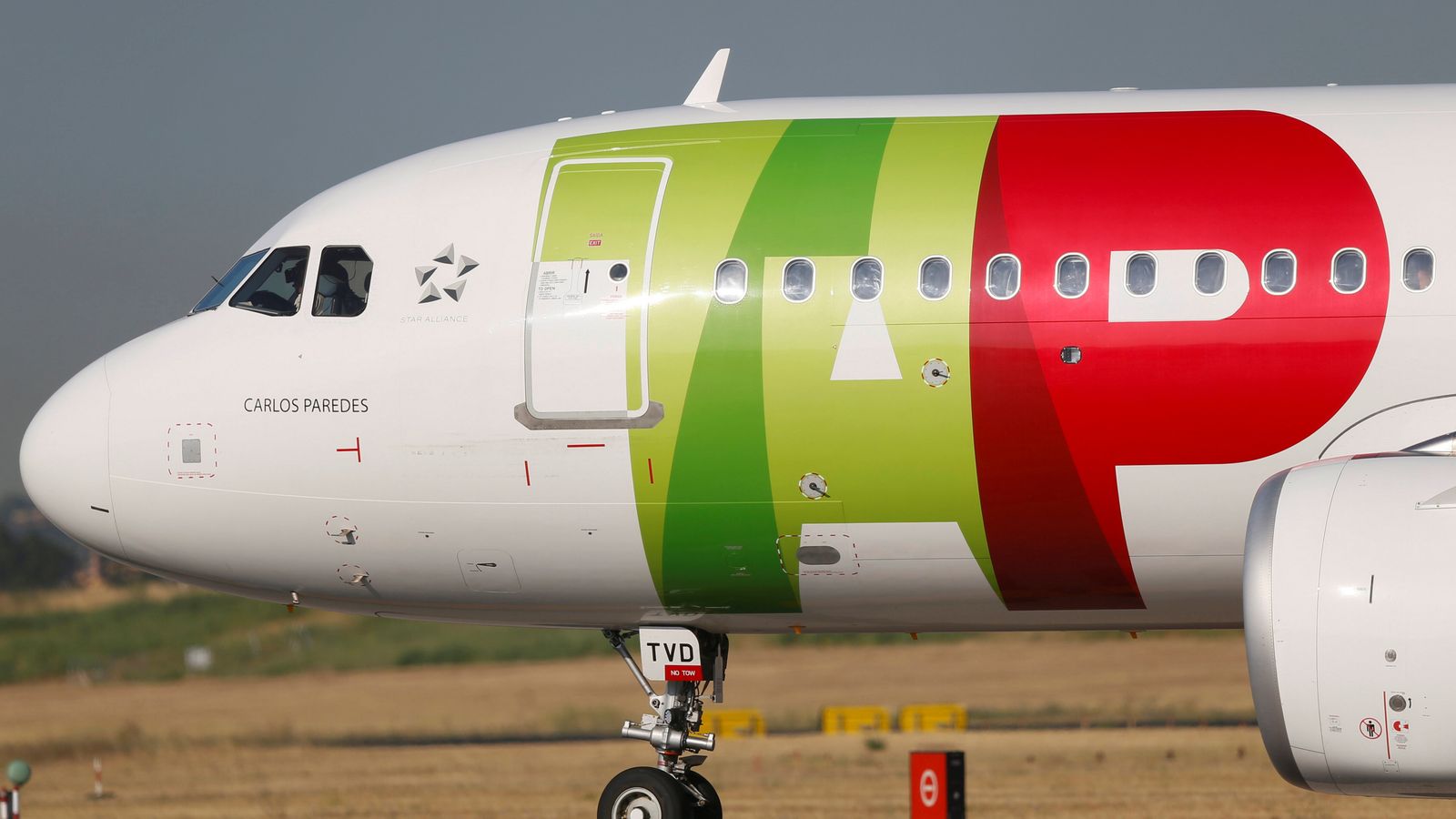The southern counteroffensive by the Ukrainians to recapture the city of Kherson has been known about but unseen.
The entire frontline has been closed to everyone for over two weeks, indeed it’s been shrouded in secrecy.
After days of negotiation the military relented and allowed Sky News to the Kherson frontline to see what has happened and what is happening.
The liberated towns in the northern campaign have revealed potential war crimes but have also seen a return to some normal life.
War crimes ‘have been committed’ – Ukraine latest
My first impression driving through the outskirts of Vysokopillya and passing checkpoints manned by soldiers sheltering beneath trees rather than more formal and more common breeze block bunkers, is that this battle is proving hard and it’s nowhere near finished.
The soldiers are still in far too much danger to set up regular checkpoints.
The Ukrainians may have taken Vysokopillya back and pushed the Russians down the road, but they’re only three miles away – in battlefield terms that is a very marginal change.
The town is smashed, it’s as simple as that really.
Small numbers of people mill about, pushing bicycles through streets strewn with glass, rubble, shrapnel, burnt-out cars and vans, and lined by streets of shelled houses.
The centre of town is eerily quiet apart from the thud and boom of artillery a short distance away.
The fins of unexploded rockets look like metal fronds of a pot plant buried into the ground.
Interesting to look at, but lethal.
Bizarrely, just down the road the Russians are overseeing a referendum on whether the Kherson region should become part of the Russian Federation.
Until 5 September, the residents of Vysokopillya would also have been forced to vote.
Now the people we spoke to dismiss the referendum as ridiculous, and certainly not for them.
Halyna, 65, was hard to miss, walking down the street with her bicycle and dog, and wearing a bright red dressing gown.
She looked traumatised, but want to talk about life here, and the referendum taking place a few miles away.
“The referendum?” she said, before I could finish my question. “I would never vote for that! I don’t need any ‘Russian world’.”
“People there live normal lives in Moscow, Leningrad and other such cities but in their villages, I don’t want that life.”
Read more:
Ukrainian mothers desperately try to find children
Will Russia use nuclear weapons?
Five Britons released in prisoner swap return to families
The Russians said they would never leave. The residents who stayed or have returned speak of living in fear and more importantly, systematic widespread looting.
On the road the Russians retreated down, we filmed a burned-out van that appeared to have been packed with motorbikes, thought to have been stolen.
One of the residents, Bohdan, talked to me at the gate to his home that was itself badly damaged from bombing.
He told me stealing and looting was standard procedure for the Russian soldiers.
Click to subscribe to Ukraine War Diaries wherever you get your podcasts
“They were stealing everything, the cars, even bicycles, all the technical stuff… everything,” the 71-year-old said.
“If they couldn’t start a car, they towed it and didn’t leave anything behind. They just burnt, destroyed, and broke everything.”
Husband and wife Vasyl and Nadiya lived under occupation too.
They managed to leave for a while, and have now come back, but they’re struggling with what they lived through.
“They abused people, beat them, it was horrifying. They didn’t let us leave our homes,” Nadiya explained.
“As soon as we tried to leave, they shot over our heads with machine guns, so we had to hide. They were afraid of us seeing where they hid their machines and weapons, they even had ‘grads’ there, so we just stayed in the basement, because we were afraid to leave.”
“It was so humiliating; I have no words to describe it…” her husband Vasyl added.
The area hospital was used by the Russians as their headquarters. In front of it, a blue car with the now infamous ‘Z’ painted on its side.
There are a couple of rows of new graves in the town’s cemetery for people who died during the occupation and the liberation.
Volodya Kostenko showed us inside. He explained he had joined a group that collected the dead and buried them.
He wept gently at the graves of a family.
Volodya had used his car and trailer to pick up the bodies. He told us he brought 13 to the cemetery and buried them himself.
Most who died were elderly or ill. But he revealed one was a family who he says were shot dead, murdered by the Russians.
He has no idea why.
As he spoke, he broke down, walked away and cried.
Few will get over this war.

